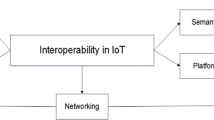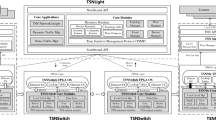Abstract
Real-time embedded systems have evolved during the past several decades from small custom-designed digital hardware to large distributed processing systems. As these systems become more complex, their interoperability, evolvability and cost-effectiveness requirements motivate the use of commercial-off-the-shelf components. This raises the challenge of constructing dependable and predictable real-time services for application developers on top of the inexpensive hardware and software components which has minimal support for timeliness and dependability guarantees. We are addressing this challenge in the ARMADA project.
ARMADA is set of communication and middleware services that provide support for fault-tolerance and end-to-end guarantees for embedded real-time distributed applications. Since real-time performance of such applications depends heavily on the communication subsystem, the first thrust of the project is to develop a predictable communication service and architecture to ensure QoS-sensitive message delivery. Fault-tolerance is of paramount importance to embedded safety-critical systems. In its second thrust, ARMADA aims to offload the complexity of developing fault-tolerant applications from the application programmer by focusing on a collection of modular, composable middleware for fault-tolerant group communication and replication under timing constraints. Finally, we develop tools for testing and validating the behavior of our services. We give an overview of the ARMADA project, describing the architecture and presenting its implementation status.
Similar content being viewed by others
References
Abdelzaher, Tarek, Anees Shaikh, Scott Dawson, Farnam Jahanian, and Kang Shin. Rtcast: Lightweight multicast for real-time process groups. in submission, available at http://www.eecs.umich.edu/RTCL/armada/rtcast/, 1997.
Abdelzaher, Tarek, Anees Shaikh, Farnam Jahanian, and Kang Shin. RTCAST: Lightweight multicast for realtime process groups. In Proc.IEEE Real-Time Technology and Applications Symposium (RTAS' 96), pages 250–259, Boston, MA, June 1996.
Amir, Y., D. Dolev, S. Kramer, and D. Malki. Transis: A communication sub-system for high availability. Technical Report TR CS91–13, Dept. of Computer Science, Hebrew University, April 1992.
Amir, Y., L.E. Moser, P.M. Melliar-Smith, D.A. Agarwal, and P. Ciarfella. The Totem single-ring ordering and membership protocol. ACM Transactions on Computer Systems, 13(4):311–342, November 1995.
Anderson, D.P., S. Y. Tzou, R. Wahbe, R. Govindan, and M. Andrews. Support for continuous media in the DASH system. In Proc.Int'l Conf.on Distributed Computing Systems, pages 54–61, 1990.
Arlat, Jean, Martine Aguera, Yves Crouzet, Jean-Charles Fabre, Eliane Martins, and David Powell. Experimental evaluation of the fault tolerance of an atomic multicast system. IEEE Trans.Reliability, 39(4):455–467, October 1990.
Birman, Kenneth P. The process group approach to reliable distributed computing. Communications of the ACM, 36(12):37–53, December 1993.
Cristian, F., B. Dancy, and J. Dehn. Fault-tolerance in the advanced automation system. In Proc.of Fault-Tolerant Computing Symposium, pages 6–17, June 1990.
Crovella, Mark and Azer Bestavros. Self-similarity in world wide web traffic: Evidence and possible causes. In SIGMETRICS' 96, May 1996.
Cruz, Rene Leonardo. A Calculus for Network Delay and a Note on Topologies of Interconnection Networks. PhD thesis, University of Illinois at Urbana-Champaign, July 1987. available as technical report UILU–ENG– 87–2246.
Dawson, Scott, Farnam Jahanian, and Todd Mitton. Experiments on six commercial tcp implementations using a software fault injection tool. to appear in Software Practice & Experience.
Dawson, Scott, Farnam Jahanian, and Todd Mitton. Testing of Fault-Tolerant and Real-Time Distributed Systems via Protocol Fault Injection. In International Symposium on Fault-Tolerant Computing, pages 404–414, Sendai, Japan, June 1996.
Ferrari, Domenico and Dinesh C. Verma. A scheme for real-time channel establishment in wide-area networks. IEEE Journal on Selected Areas in Communications, 8(3):368–379, Apri 1990.
Garrett, Mark and Walter Willinger. Analysis, modeling and generation of self-similar vbr video traffic. In SIGCOMM' 94, pages 269–280, 1994.
Hutchinson, Norman C. and Larry L. Peterson. The x-Kernel: Anarchitecture for implementing network protocols. IEEE Trans.Software Engineering, 17(1):1–13, January 1991.
Kandlur, D. D., K. G. Shin, and D. Ferrari. Real-time communication in multi-hop networks. IEEE Trans.on Parallel and Distributed Systems, 5(10):1044–1056, October 1994.
Kopetz, Hermann and G¨unter Gr¨unsteidl. TTP – a protocol for fault-tolerant real-time systems. IEEE Computer, 27(1): 14–23, January 1994.
Leland, Will, Murad S. Taqqu, Walter Willinger, and Daniel Wilson. On the self-similar nature of ethernet traffic (extended version). IEEE/ACM Transactions on Networking, 2(1):1–15, February 1994.
McCanne, Steve and Van Jacobso. The bsd packet filter: A new architecture for user-level packet capture. In Proceedings of the 1993 Winter USENIX Technical Conference, San Diego, CA, January 1993.
Mehra, Ashish, Atri Indiresan, and Kang Shin. Structuring communication software for quality of service guarantees. In Proc.17th Real-Time Systems Symposium, pages 144–154, December 1996.
Mehra, Ashish, Anees Shaikh, Tarek Abdelzaher, Zhiqun Wang, and Kang G. Shin. Realizing services for guaranteed-qos communication on a microkernel operating system. In Proc.Real-Time Systems Symposium, Madrid, Spain, December 1998.
Mishra, S., L.L. Peterson, and R.D. Schlichting. Consul: A communication substrate for fault-tolerant distributed programs. Distributed Systems Engineering Journal, 1(2):87–103, December 1993.
Paxson, Vern. Empirically-derived analytic models of wide-area tcp connections. IEEE/ACM Transactions on Networking, 2(4):316–336, August 1994.
Paxson, Vern and Sally Floyd. Wide-area traffic: The failure of poisson modeling. In SIGCOMM' 94, pages 257–268, August 1994.
Travostino, F. E.Menze, and F.Reynolds. Paths: Programming with system resources in support of real-time distributed applications. In Proc.IEEEWorkshop on Object-Oriented Real-Time Dependable Systems, February 1996.
van Renesse, R., T.M. Hickey, and K.P. Birman. Design and performance of Horus: A lightweight group communications system. Technical Report TR94–1442, Dept. of Computer Science, Cornell University, August 1994.
Zou, Hengming and Farnam Jahanian. Real-time primary backup (RTPB) replication with temporal consistency guarantees. In Proceedings Intl.Conf.on Distributed Computing Systems, pages 48–56, Amsterdam, Netherlands, May 1998.
Author information
Authors and Affiliations
Rights and permissions
About this article
Cite this article
Abdelzaher, T., Dawson, S., Feng, WC. et al. ARMADA Middleware and Communication Services. Real-Time Systems 16, 127–153 (1999). https://doi.org/10.1023/A:1008009721495
Issue Date:
DOI: https://doi.org/10.1023/A:1008009721495




